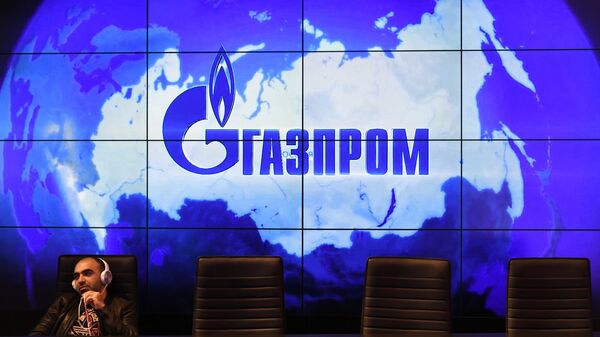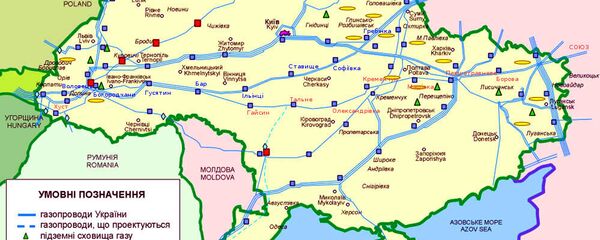The gas dispute between Russia and Ukraine essentially started over violations of a contract signed back in 2009. It posited that Ukraine would buy a certain amount of Russian gas annually, while Gazprom would transit a certain minimum volume of gas every year through the Ukrainian pipeline. However, at some point after the Ukrainian government was overthrown in the 2014 coup, Kiev stopped buying gas, thereby initiating a gas dispute between countries.
Here is how it erupted and developed over the years, with mutual demands, lawsuits, and attempts to reconcile.
Ukraine's Violations and Gazprom's Demands
- Following the coup, Kiev started accumulating debt by not paying for the gas it had obtained from Russia. This was partially due to Moscow discontinuing discounts on gas that had been granted to the country, raising prices from 286 dollars to the market level of 485 dollars per 1,000 cubic metres.
- These discounts were tied to a leasing contract for a Black Sea military base for Russia’s fleet in Crimea, which was voided soon after the 2014 coup.
- The Ukrainian gas debt reached $5 billion and in June 2014, Gazprom started supplying gas to Ukraine on a pre-paid basis only. Kiev refused to buy it on such terms, while demanding a return to the old gas price, stopping its gas purchases from Russia.
- Gazprom filed a suit with the Stockholm Court of Arbitration, demanding that Ukraine’s Naftogaz gas company repay the debt and pay a fine for not buying the minimum gas volume from Russia.
- Gazprom made several proposals for gas prices to Kiev, offering to reduce it to 232 dollars, but Ukraine repeatedly skipped payments throughout 2015. On 25 November 2015, Russia stopped supplying gas to the country for good due to its unwillingness to pay for it.
- The amount demanded by Gazprom from Naftogaz over its debt and unbought gas grew as the dispute continued, increasing from $5 billion to $37 billion by 2017.
- The Stockholm Court of Arbitration decided on 22 December 2017 to partially satisfy Gazprom's demands, ruling that Naftogaz had to pay $2.019 billion to the Russian company. It dismissed Kiev's demands for a reduction of gas prices.
Ukraine’s Naftogaz's Counter-Demands
- Parallel with Gazprom's demands, Ukraine’s Naftogaz in October 2014 filed its own suit with the Stockholm Court of Arbitration, accusing the Russian company of violating the provisions of the 2009 contract by transiting less than the minimum set volumes of gas annually.
- Naftogaz also demanded that the transit prices set in 2009 be increased.
- The amount demanded by Naftogaz was constantly growing, reaching $27 billion in 2017.
- The Stockholm Court of Arbitration ruled on 28 February 2018 that Gazprom owed $4.673 billion to Naftogaz for transiting less than the required volume of gas through Ukraine's pipeline system.
Signing of New Contract
While Ukraine was satisfied with the court's decision, Gazprom appealed the ruling, refusing to pay the consequent $2.56 billion fine. The fine also served as a stumbling block in the negotiations between Gazprom and Naftogaz on a new contract to replace the one signed in 2009 – the Russian company demanded that the two parties mutually nullify their demands in order to sign an agreement. Kiev refused to do so, even though the contract would guarantee gas transits through Ukraine despite the upcoming launch of two new pipelines to Europe from Russia.
In the end, Russia acceded to Ukraine's demands and signed the new contract on 31 December 2019 while agreeing to pay $2.56 billion, with Russian Prime Minister Dmitry Medvedev calling it a "necessary compromise". At the same time, the new deal ensures that the two sides will never file any new suits on old contracts in the future and will recall all pending cases from the courts against each other.
Gazprom will transit at least 65 billion cubic metres (over two trillion cubic feet) in 2020 and 40 billion cubic metres (1.5 trillion cubic feet) per year thereafter for four more years through Ukraine under the new contract. Ukrainian President Volodymyr Zelensky stated that Kiev expects to receive at least $7 billion in revenue during the five-year period that the contract covers.




